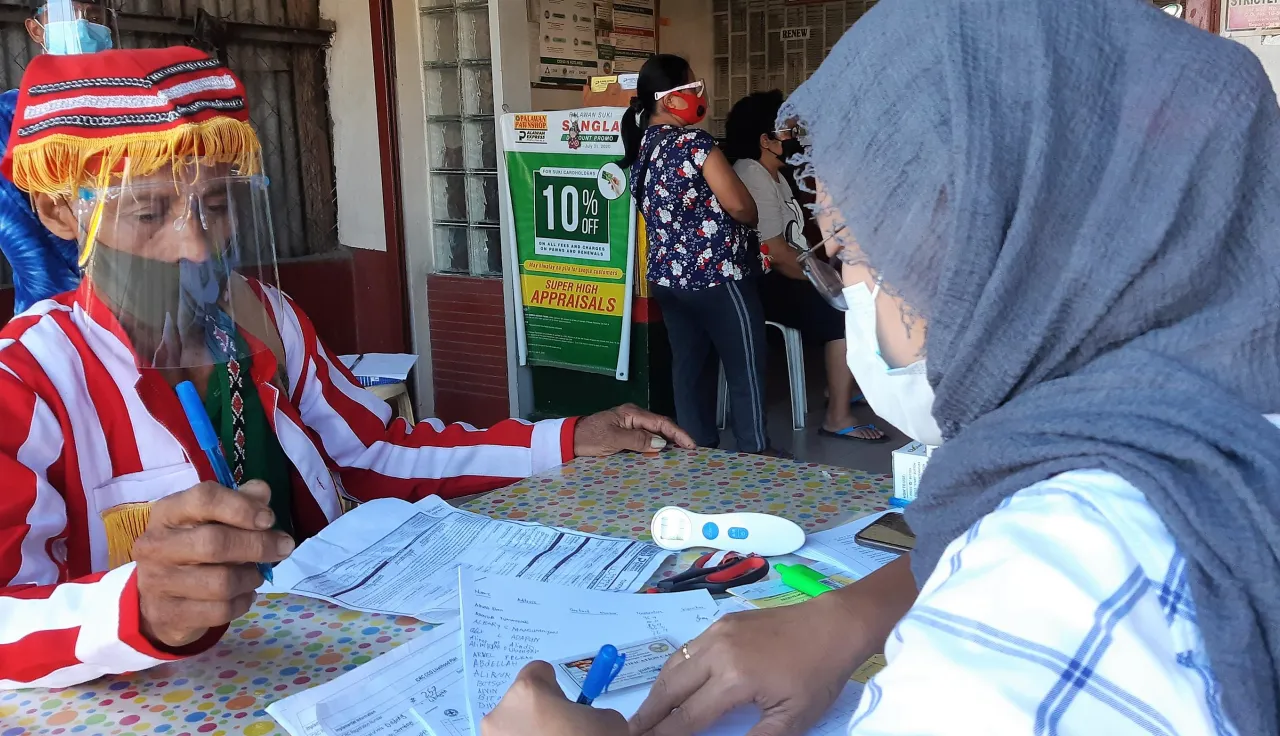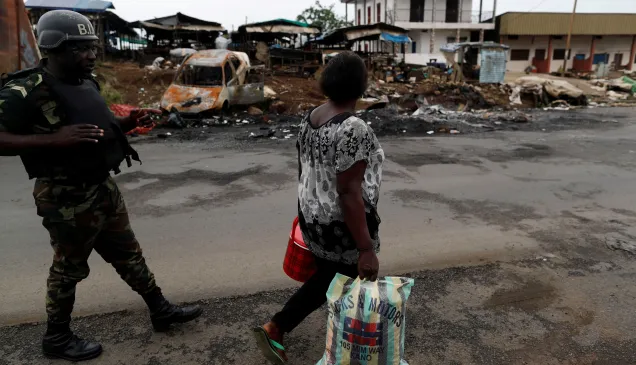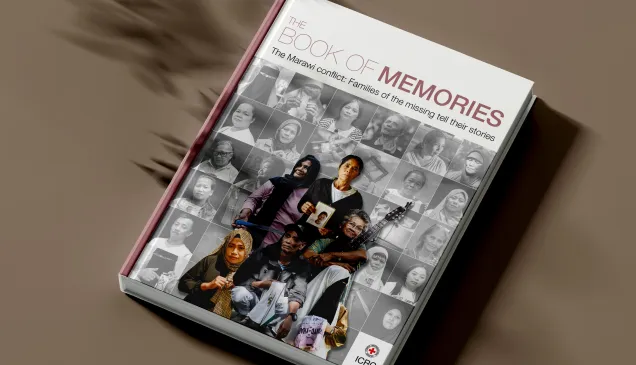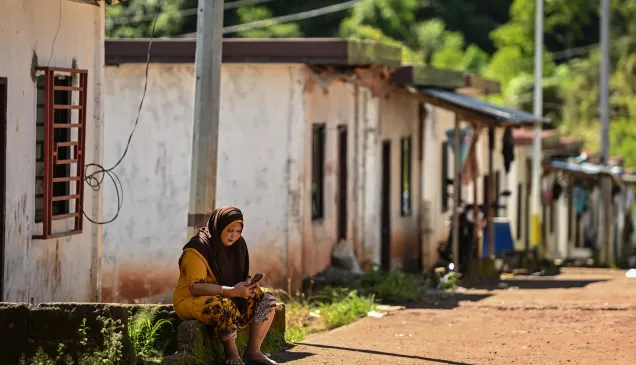A new beginning

Protracted armed conflict in Kalilangan village in the hinterlands of Iligan City, Lanao del Norte province, has displaced around 320 families.
In 2020, they experienced fleeing to the village capital and staying in a school building and barangay hall thrice. Other displaced families sought shelter with relatives in a neighboring town.
Ignacio Lihayan, leader of the indigenous Higaonon tribe, and his family live in Samid-samid Upper Kalilangan, the area most affected by the recurrent clashes. Majority of the displaced community members are farmers whose main source of income is rice and corn production.
“Nagsalig mi sa lagot-mon na pang uma og sa abaca na produkto. Sakto lang na nga panginabuhi sa ako ug uban sa akong pamilya (“We relied on root crop farming and abaca production for income, and it was enough for me and my family to get by),” he recalled.
Nowadays, Ignacio struggles to provide for his family’s basic needs as they remain displaced and he could not resume farming. “I temporarily do backyard gardening on a portion of land provided by the village captain, but I’m short of resources and only borrow spare tools from friends,” he said.
Most of the displaced families have returned home, but over 20 families including Ignacio’s stay in makeshift houses near the barangay hall due to fear of another clash.
Protracted armed conflicts often put a strain on the affected families’ source of income. After assessing the living conditions of the displaced families in Kalilangan, the International Committee of the Red Cross (ICRC), a humanitarian organization that strives to protect and assist victims of armed conflict, saw the need to provide multipurpose cash grants to help these families restore their livelihood and to address their priority household needs. The grants aim to augment the local government unit’s response.

Around 1,600 people in Kalilangan, Iligan City, received conditional cash grant from the ICRC to help them start again. The pay-out was done on December 9-11, 2020 through a financial service provider selected by the ICRC for its accessibility to beneficiaries.
"The cash grant will help residents to regain their sources of livelihood that was made more challenging to restore by the COVID-19 travel restrictions," said Hussien Abubacar of ICRC's economic security team. "Three months after the distribution, we will do post-distribution monitoring to assess the livelihood outputs where they spent the conditional cash," he added.
In adherence to COVID-19 health and safety protocols, the distribution was done in three batches on December 9-11, 2020, through an accessible financial service provider selected by the ICRC. Volunteers from the Philippine Red Cross, the ICRC's primary humanitarian partner, supported the three-day distribution.

Ignacio bought farm tools, seedlings and food items out of the cash grant. He and other displaced families are temporarily doing backyard gardening for livelihood on a piece of land provided by the village captain.
Ignacio is relieved to have received the grant. He used the money to buy his own farming tools, seedlings for the garden, and food items for his family. “I can’t help but feel grateful. I can now nurture our backyard garden and cultivate the crops,” he said.
Ignacio is eager to return home soon but for now, he utilizes the resources he has, and with the cash grant, he is hopeful for a new beginning.
Text by Amer Hassan Sanggacala, ICRC communication officer based in Iligan City. Photos by Hussien Abubacar, ICRC economic security field officer.



